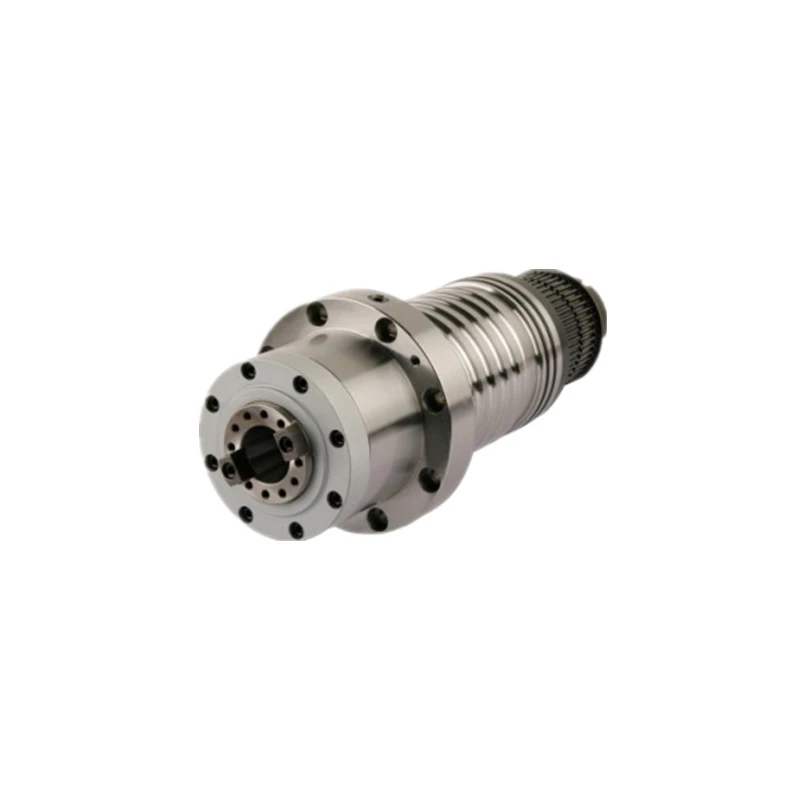1 月 . 17, 2025 14:26 Back to list
Linear Bearings in the Automotive Industry: From Precision to Performance
Linear bearings are indispensable components in the automotive industry, playing a critical role in achieving the precision and performance demanded by modern automotive manufacturing. From assembly lines to advanced vehicle systems, linear bearings facilitate smooth, efficient motion while maintaining high standards of accuracy. As automotive technology continues to evolve, these bearings are being used in increasingly sophisticated applications, contributing to the production of safer, more reliable, and high-performing vehicles. This article explores the essential role of linear bearings in the automotive sector, highlighting how they contribute to both precision and overall performance.

The Role of Linear Bearings in Automotive Manufacturing
Linear bearings are employed in various stages of automotive manufacturing, from assembly to testing. Their primary function is to support the smooth linear motion of components along fixed paths, significantly reducing friction between moving parts. In manufacturing environments, linear bearings are critical for maintaining the accuracy and speed of automated systems used in the production of vehicle components.
For example, robotic arms used in assembly lines rely on supported linear shaft to move along pre-programmed paths with high precision. Whether moving parts into place, performing welding or painting tasks, or handling delicate components, these bearings ensure that the robotic systems function smoothly and without interruptions. By enabling precise movements, linear bearings help maintain the efficiency and quality of the manufacturing process, reducing defects and improving overall productivity.
Enhancing Performance in Vehicle Systems With Linear Bearings
Beyond the manufacturing process, linear slide bearing are integral to the performance of various vehicle systems. In the automotive industry, where performance is critical, the ability of a vehicle’s components to move smoothly and efficiently can greatly impact its driving characteristics, durability, and overall reliability.
Linear bearings are commonly found in components like power steering systems, suspension systems, and engine components. In power steering, for example, they help reduce friction and enable the smooth movement of steering components, ensuring a more responsive and effortless driving experience. In suspension systems, linear bearings are used to support the smooth movement of shock absorbers and struts, helping to maintain ride comfort and handling performance.
Additionally, linear bearings are integral to electric vehicle (EV) systems, where they contribute to the efficiency of powertrains, braking systems, and battery cooling units. As EVs become more prevalent, the demand for high-performance, reliable linear bearings increases, as these vehicles require components that can operate smoothly under the pressure of higher torque, speed, and more frequent usage.
Precision Engineering for Safety and Quality With Linear Bearings
Precision is a fundamental requirement in the automotive industry, especially when it comes to vehicle safety systems. Linear bearings are designed to meet tight tolerances, ensuring that every moving part in the vehicle operates as intended. This is particularly important in safety-critical systems such as airbags, braking systems, and autonomous driving technologies.
In braking systems, for example, linear bearings help maintain the smooth movement of components like calipers, ensuring that the braking action is efficient and responsive. For autonomous vehicles, linear bearings are used in sensors and actuators that enable precise movement and control. These high-precision applications demand linear bearings that can withstand harsh operating conditions while maintaining accuracy and performance over the vehicle's lifespan.
The quality of the bearings used in these systems is paramount, as any failure or malfunction can result in catastrophic consequences. Manufacturers choose linear bearings that offer not only high precision but also superior durability to ensure the safety and reliability of the final product.
The Shift Toward Lightweight Materials About Linear Bearings
As the automotive industry continues to prioritize fuel efficiency and sustainability, there has been a growing shift toward lightweight materials in vehicle design. Linear bearings are playing a crucial role in this trend, as manufacturers seek ways to reduce the weight of vehicles while maintaining high performance.
Innovations in bearing materials have led to the development of lightweight yet durable bearings made from advanced composites, ceramics, and specialized polymers. These materials offer reduced weight without sacrificing the load-bearing capacity or performance characteristics necessary for automotive applications. For example, ceramic bearings are highly resistant to wear and heat, making them ideal for use in high-performance automotive systems such as turbochargers and high-speed axles.
The use of lightweight materials in linear bearings contributes to overall fuel efficiency and lower emissions by reducing the weight of the vehicle’s components. This is particularly important in the context of electric vehicles, where every kilogram saved can result in improved range and efficiency.
Improving Durability and Longevity With Linear Bearings
Durability is a crucial factor when selecting linear bearings for automotive applications. Bearings used in vehicles must be able to withstand extreme conditions, including temperature fluctuations, heavy loads, and exposure to dirt, dust, and moisture. The automotive industry demands bearings that can function reliably over the long term, reducing the need for repairs and replacements.
To meet these demands, linear bearings are now being designed with advanced sealing technologies and specialized coatings that protect against contaminants and wear. These features help extend the life of the bearings, ensuring they perform reliably throughout the lifespan of the vehicle. For example, seals made from elastomers or PTFE coatings are used to keep out dust and moisture, while reducing friction and preventing corrosion.
By enhancing the durability of linear bearings, automotive manufacturers can improve the overall lifespan and performance of their vehicles. Bearings that last longer reduce maintenance costs and improve the long-term reliability of critical vehicle systems.
-
Why Steel Mills Rely on FODA’s High-Temperature Cylindrical Roller Bearings?
NewsApr.10,2025
-
What is a Plain Bearing? A Complete Guide to Design & Functionality
NewsApr.10,2025
-
Thrust Ball Bearings vs. Tapered Roller Bearings: FODA’s Performance Comparison
NewsApr.10,2025
-
The Engineering Behind FODA Thrust Ball Bearings: Precision for High-Speed Applications
NewsApr.10,2025
-
No More Compromises: Get Precision-Engineered Custom Bearings Tailored to Your Exact Specifications
NewsApr.10,2025
-
In-Depth Analysis: Application Differences of Different Types of Angular Contact Ball Bearings
NewsApr.10,2025
Products categories
















